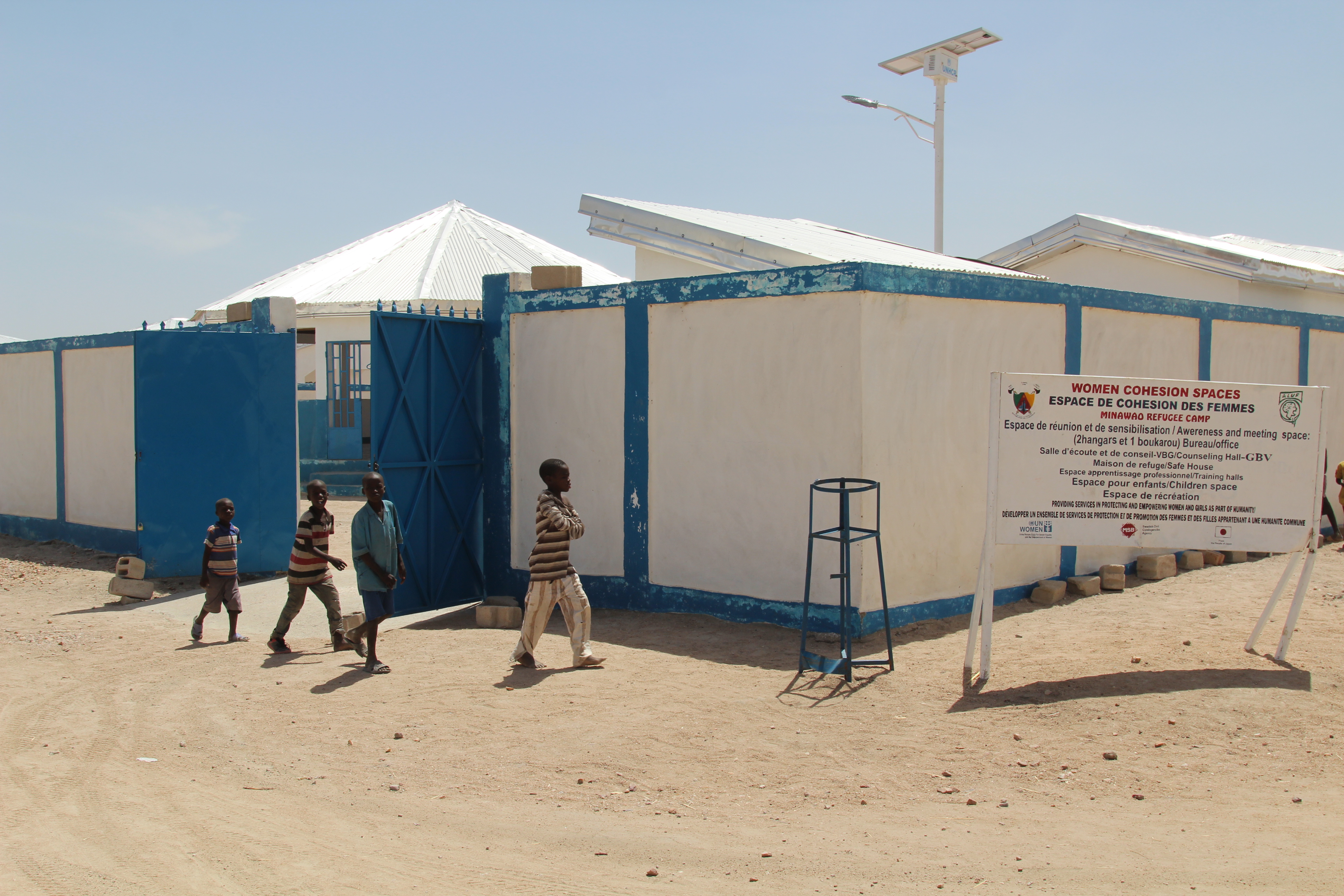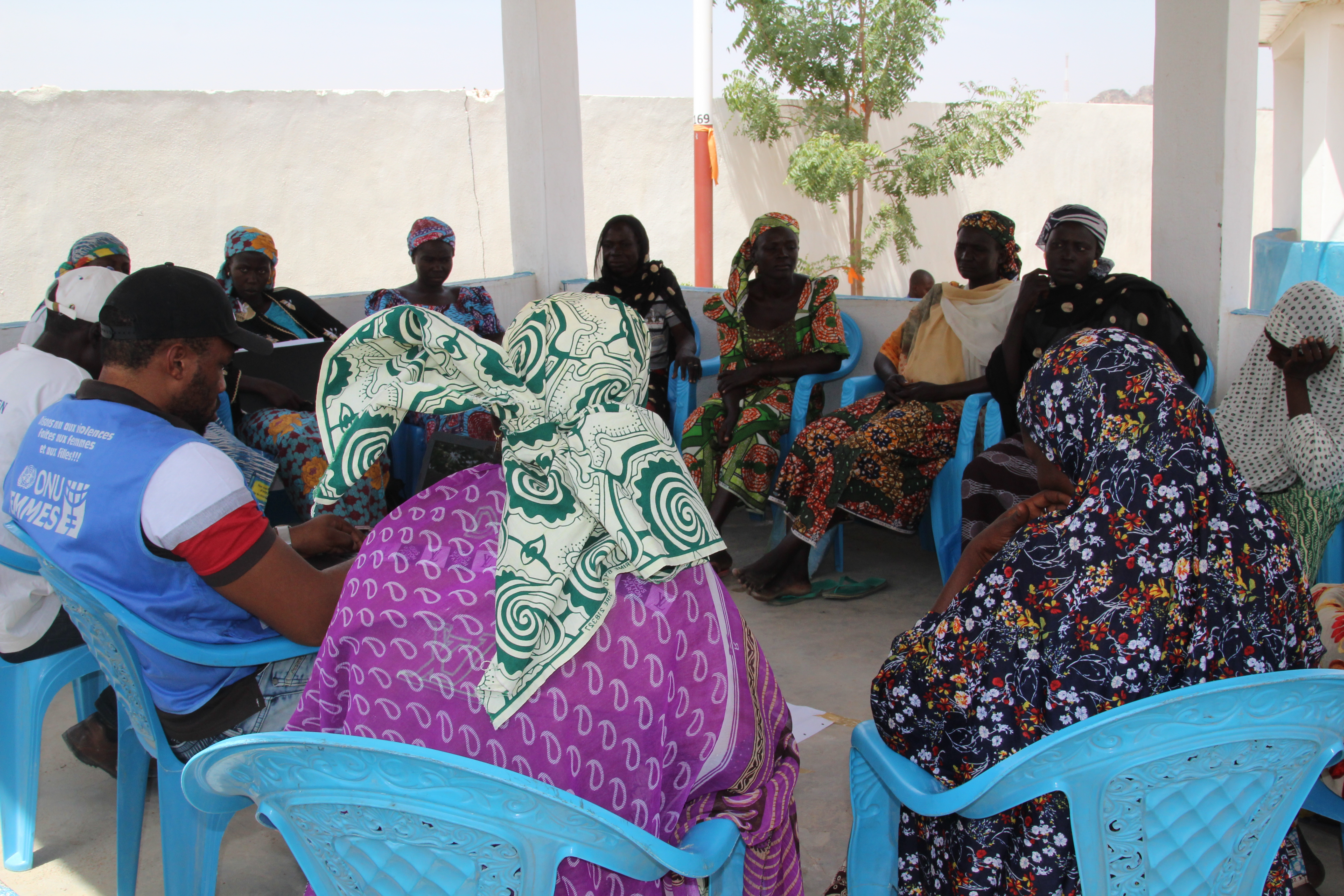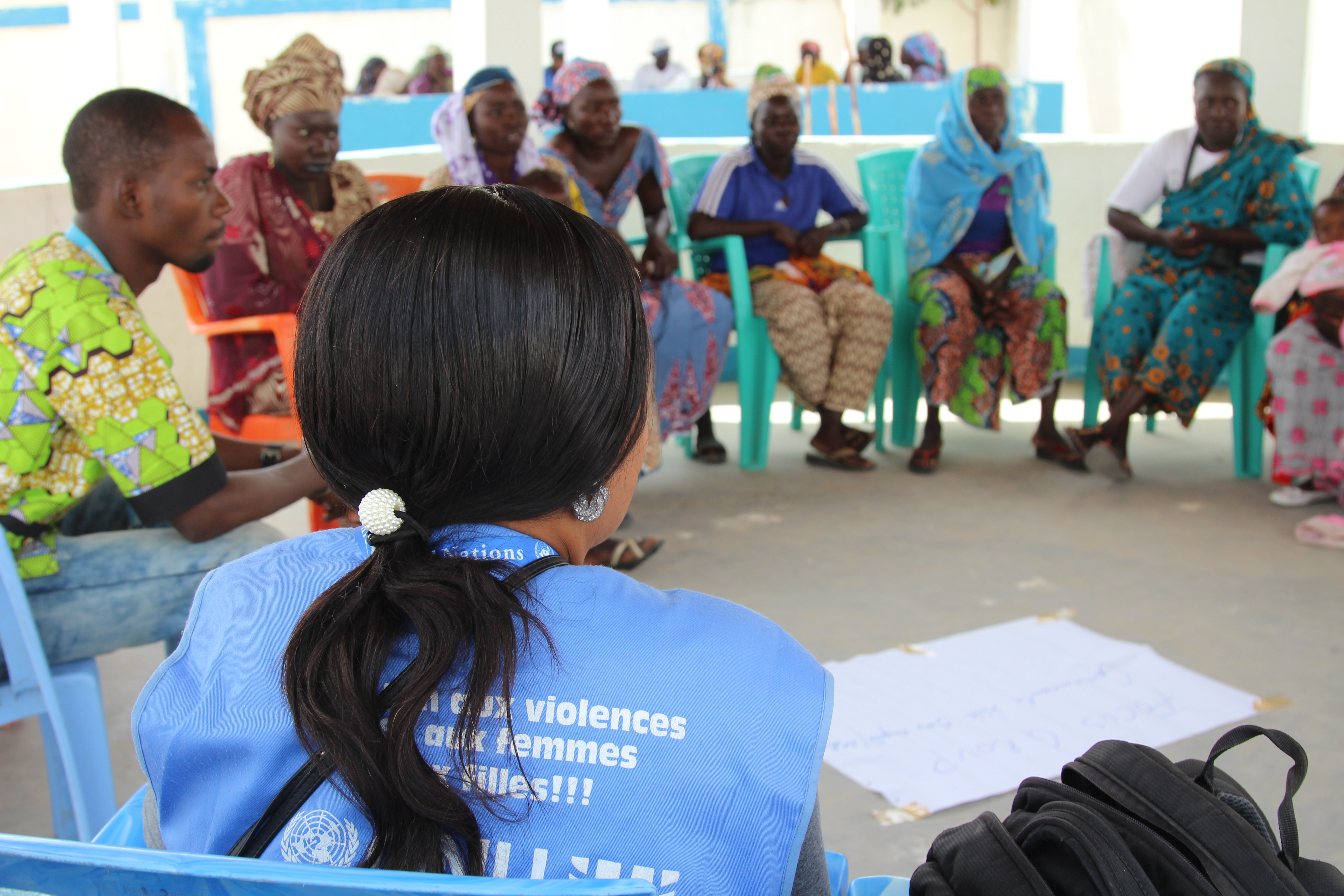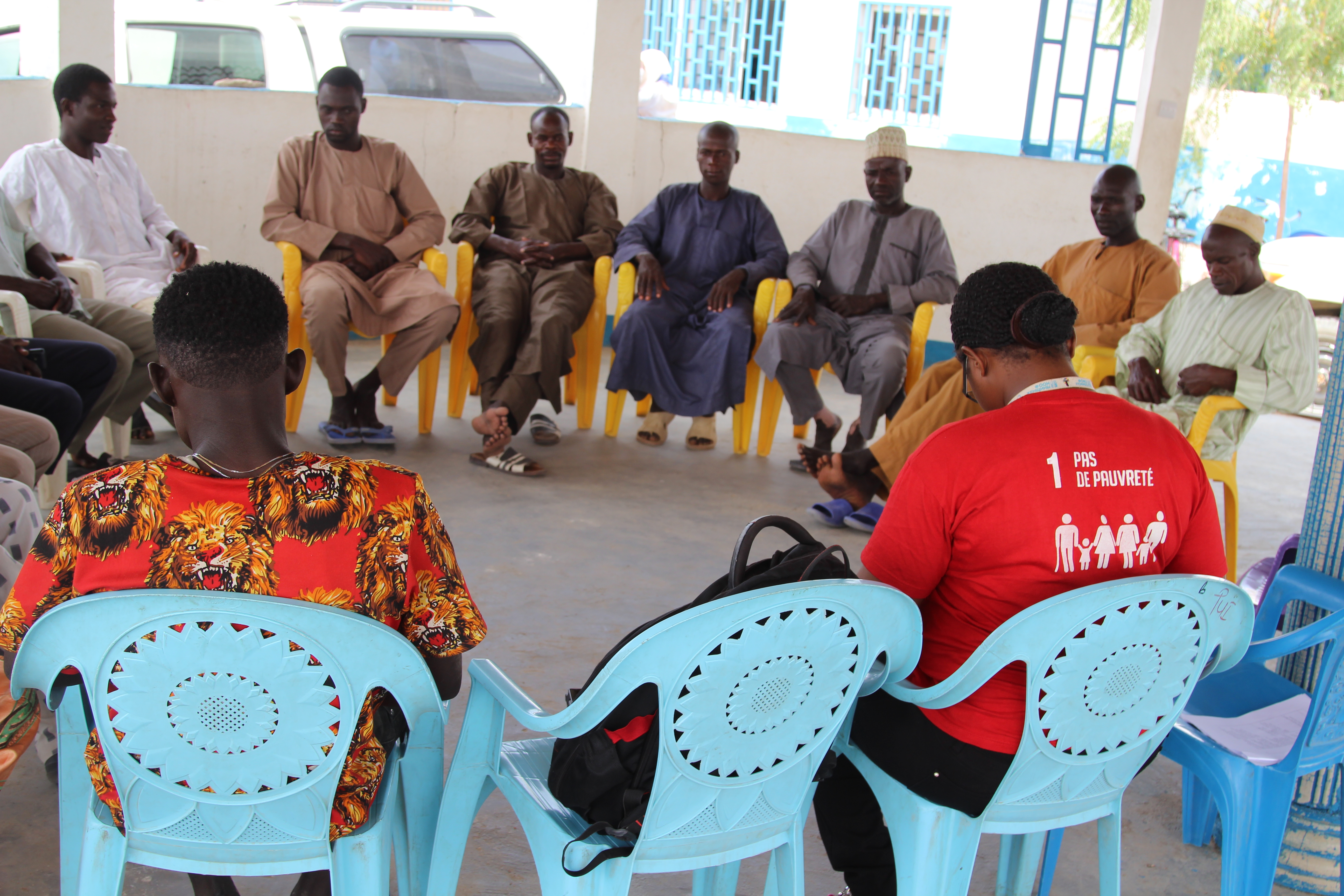UN Women facilitates access education and vocational training for women and girls affected by humanitarian crisis in Cameroon
Date:

In February 2019, UN Women Cameroon conducted a series of needs assessment, labour market and consultation activities in the East and Far North Regions to determine local needs, types of training and existing institutions and infrastructures to host beneficiaries of launched the second Chance Education and Vocational Learning (SCE) Programme.
This project much appreciated and noted it will contribute in progress towards gender equality and the empowerment of women and girls affected by humanitarian crisis. According to the Lamido Ibrahim Hamawa of Zamay, lack of education remains the biggest challenge affecting gender equality because “uneducated women lack self-affirmation, while uneducated men find it difficult changing their mentality and perception of women”. During an interview with the Divisional Officer of Mora, he decried that the Far North Region remains amongst poorest regions in Cameroon and equally has the highest level of illiteracy and under-scholarisation rate especially for women and girls which has been worsened by the Boko Haram insurgency in the region. “Offering women and girls an opportunity to education and vocational training will contribute in reducing their vulnerabilities, empower the beneficiaries and reduce poverty in the region”

Despite progress in improving access to education, only 46 percent of individual countries had achieved parity in lower secondary and 23 percent in upper secondary by 2014 as millions of young women and girls continue to be left out of educational and learning opportunities. These trends reflect the socio-economic and gender-based barriers to education faced by women and girls.
The SCE programme funded by the BHP Billiton Foundation takes an innovative approach to break current trends and provide a comprehensive solution for marginalized young women who have missed out on education by offering beneficiaries opportunities to re-enter the formal education; Vocational education that provides them with a pathway to employment; and entrepreneurship training and skills that support them to start their own business. The SCE programme will run for three years and will be implemented in six countries globally: Cameroon, Australia, Chile, Colombia, Jordan and Mexico from 2018 – 2021.

In Cameroon, the SCE program will be implemented through the existing Women’s Social Cohesion Spaces and Women’s Empowerment Centres in the Far North (Minawao Refugee camp, Mokolo and Mora), Adamawa (Ngam Refugee camp) and East Regions.
SCE program targets over 1500 Women and girls IDPs, Refugees, Returnees, Host population aged 15-24 years and over 20000 indirect beneficiaries with the objective of offering beneficiaries pathways back into formal education, employment or entrepreneurship services, which are tailored not only to their needs as learners, but also to their future as earners by linking them to employers and facilitating access to market.
